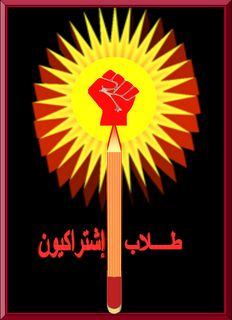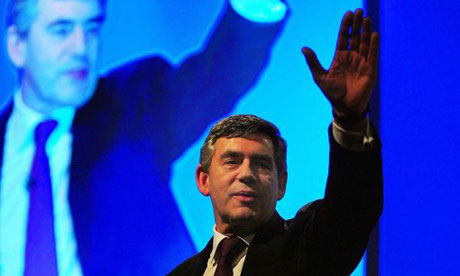[I hope John Molyneux won't mind, but a recent introductory article on Marxism and Art on his blog deserves a wider readership, and so I will republish it on Histomat, with a few pictures to hopefully make the thing more aesthetically pleasing. There is also a good short introduction to why revolutionary socialists need to organise to build revolutionary parties by John Molyneux in the latest SW - online here]What Marxism has to say about art (by which I mean all the creative arts i.e. music, literature, painting, sculpture, photography, film, drama, dance and so on) is limited but important.
It is limited in that Marxism does not offer, and should not try to offer, any prescriptions or instructions as to how artists should make their art. There is no 'Marxist' way to write poetry, or paint, or play the trumpet or compose symphonies, any more than there is a Marxist method of mechanical engineering, playing chess or doing the high jump. (Marx himself wrote some poetry when he was young, but it wasn’t very good and he soon gave it up). Marxism does not require that artists tackle certain themes e.g. class, war or revolution, rather than others such as sex, dreams or religion, or even that art be overtly political or committed.
Nor does Marxism provide a set of ready made political or ideological criteria for the evaluation of art. Mao Ze Dong was a poet as well as leader of the Chinese Revolution , but his merits as a poet are not determined by his merits or lack of them as a revolutionary or ruler of China. A Marxist who argues that T.S. Eliot was a bad poet because he was a reactionary (he was very reactionary) or that Diego Rivera was a greater painter than Picasso because he was more left wing, is not being a Marxist in his or her approach to art. Marx (and Engels) preferred the reactionary pro-aristocratic novelist, Balzac, to the progressive Zola, because he thought Balzac was a better writer who provided a fuller and more insightful picture of French society. The standpoint of Marxism, as Trotsky insisted in his debates over literature and art with the Stalinists, requires that art be judged as art.
What Marxism does do, however, is provide: a) a unique appreciation and understanding of the overall importance of art in individual and collective human development; b) the best analytical method for grasping the course of art and cultural history as a whole; c) an extremely useful standpoint for the analysis of the meaning and significance of individual works of art.
None of the great Marxists ever suggested that either individual works of art or art in general played a key role in determining the outbreak or outcome of revolutions. Nonetheless, they all took a serious interest in art and clearly felt informed and sustained by it. In this respect art seems to operate in a manner closer to medicine or nutritious food than to political action. Also the fact that art has existed in every known society in the history of the world reinforces the case for its social necessity. Marxism enables us to understand this.
For Marxism, creative labour is the essence of becoming and being human. Human beings are animals who have made themselves into more than animals through labour, 'by producing their means of subsistence' as
The German Ideology puts it (see also Engels,
The Role of Labour in the Transition from Ape to Man). Through labour humans shape their environment, their history and themselves.
However, in class divided society, and especially in capitalist society, most people most of the time are deprived of the possibility of creative labour. Their labour is alienated: they do not control it, and are forced to perform it not for themselves but at the behest of others and it becomes something that damages and distorts their lives. Art is the name we give to one of the few forms of creative labour, i.e. labour controlled by the producer (revolutionary practice is another) that is possible in class society. This makes genuine truthful communication of ideas and emotions possible in art in a way that is not possible in completely mercenary entertainment, journalism and advertising. And this is why art is important to us as human beings and Marxists even when that art is ideologically conservative and even though the art world and the cultural industries are dominated by the ruling class.
Indeed it is a central proposition of Marxist art history that the class which controls the major means of material production will also fundamentally dominate artistic production. For Marxism approaches art history on the basis of historical materialism which sees art, along with religion, philosophy, politics and law, as part of the superstructure of society which rests on, and is conditioned by, the economic base constituted by the forces and relations of production.
Of course the relations between economic development, class and art are not to be understood mechanically – they are complex and highly mediated – but denying or disregarding them as in the numerous bourgeois schools of formalist art and literary criticism makes it impossible to grasp the overall movement of cultural history or major developments within it.
 Breughal's Landscape with the Fall of Icarus (c. 1558)
Breughal's Landscape with the Fall of Icarus (c. 1558)For example, why was the art of the European Middle Ages so (relatively) static, formalised and unchanging? Because it reflected the (relatively) slow development of the forces of production under feudalism and their accompaniment by a rigid social hierarchy resting on frozen relations of production. What generated the spectacular artistic and cultural upsurge of the Renaissance that began in Florence at the end of the thirteenth century (with Dante and Giotto), culminated in Italy with Leonardo, Michelangelo and Titian and then spread north through Germany, the Netherlands and England, encompassing such giant figures as Durer, Breughal, Rembrandt and Shakespeare? The historical materialist will answer that it was a reflection of the rise, at first within the fetters of feudalism and then breaking through in its own right, of the dynamic but contradictory system of capitalism and of the class associated with it, namely the bourgeoisie.
How do we explain why the stately procession of artistic phases (Renaissance, Baroque, Rococo, Neo-Classical, Romantic) measured in centuries and half centuries, suddenly gave way to the frenzy of modernism in which art movements (impressionism, expressionism, fauvism cubism, futurism, suprematism, dadaism etc) came and went almost in the blink of an eye, except as a response to the 'constant revolutionising of production' and 'uninterrupted disturbance of all social conditions' imposed by modern capitalism.
Can the succession of blues, jazz, rhythm and blues, soul, hip hop etc, and therefore the whole course of modern popular music from Elvis Presley to Amy Winehouse be understood apart from the freedom struggle of Black America?
Even where individual works and individual artists are concerned Marxism offers unique insights. In his great book
Ways of Seeing John Berger used the Marxist critique of capitalist social relations to produce superb accounts of Holbein’s
The Ambassadors and Dutch still-life paintings. Neither Charlie Chaplin’s film
Modern Times nor Samuel Beckett’s
Waiting for Godot can be understood without a grasp of Marx’s theory of alienation. In Seoul eighteen months ago I saw the Korean artist, Nam June Paik’s great pagoda of TV monitors
The More the Better. It cried out for analysis using the concepts of Trotsky’s theory of combined and uneven development.
 Holbein's The Ambassadors (1533)
Holbein's The Ambassadors (1533)No amount of Marxism can substitute for specific knowledge of, and sensitivity to, the art concerned. But art is part of society and evolves in constant interaction with society. The richest, most profound and most scientific analysis of society, which is Marxism, cannot fail to enrich our understanding of art.
Labels: art, Marxism











